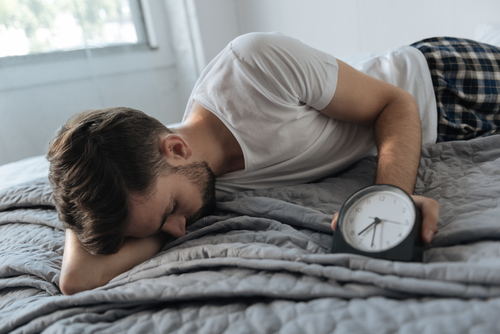Study Finds High Rate Of Sleep Disorders In Ethiopian Parkinson’s Patients

Trouble sleeping is incredibly frequent among people with Parkinson’s disease in Ethiopia, a new study suggests.
Titled “Prevalence of sleep disorders in Parkinson’s disease patients in two neurology referral hospitals in Ethiopia,” the study was published in the journal BMC Neurology.
Sleep disorders are common among people with Parkinson’s, but rates vary wildly from study to study. Some estimate that only about one-third of people with Parkinson’s have a sleep disorder, while others suggest that up to 98% do.
“Poor sleep quality has been associated with poverty and race, and yet there has been no prior report on sleep disorders in those with PD living in sub Saharan Africa,” the researchers said.
To learn more, the team sought to document the prevalence of sleep disorders in Parkinson’s patients in Ethiopia.
The researchers collected data for 155 people with PD (81.9% male) who were being treated at one of two neurology clinics in Ethiopia. In addition to clinical data and routine physical examinations, participants were given two sleep-related assessments: the Parkinson’s Disease Sleep Scale version- 2 (PDSS-2), which measures sleep disturbances, and the Epworth Sleepiness Scale (ESS), which assesses daytime sleepiness.
The researchers noted that these self-reported measurements are inherently subjective. But they said that, “in Ethiopia there is no polysomnography (PSG), the gold standard for evaluating sleep disorders. Therefore, we had to rely on the PDSS-2.”
None of the participants had a PDSS-2 score of zero, suggesting that all of them experienced at least some amount of sleep disturbance. A total of 66 individuals (42.6%) reported difficulty sleeping on at least two nights per week. The most frequently reported problem was having to wake up to urinate (73.5%). Other common reasons for sleep disturbance included difficulty moving in bed (37.4%), nightmares (36.1%), and trouble staying asleep (34.8%).
Based on ESS scores, a total 47.1% of participants (73/155) had daytime sleepiness that rose to the level of being at least “possibly excessive.”
This, the researchers said, is “one of the highest rates of EDS [excessive daytime sleepiness] in the world.”
Why is there such a high prevalence of sleep problems among people with Parkinson’s disease in Ethiopia? The researchers aren’t certain, but the most likely explanation is an association with poverty. Sleep disorders are more common among people in impoverished circumstances, they noted.
“Further investigation into whether poverty or race explains this finding is needed,” the investigators said.
Future studies will be needed to figure out the cause of this association and to determine how these patients can most effectively be treated, they added.






